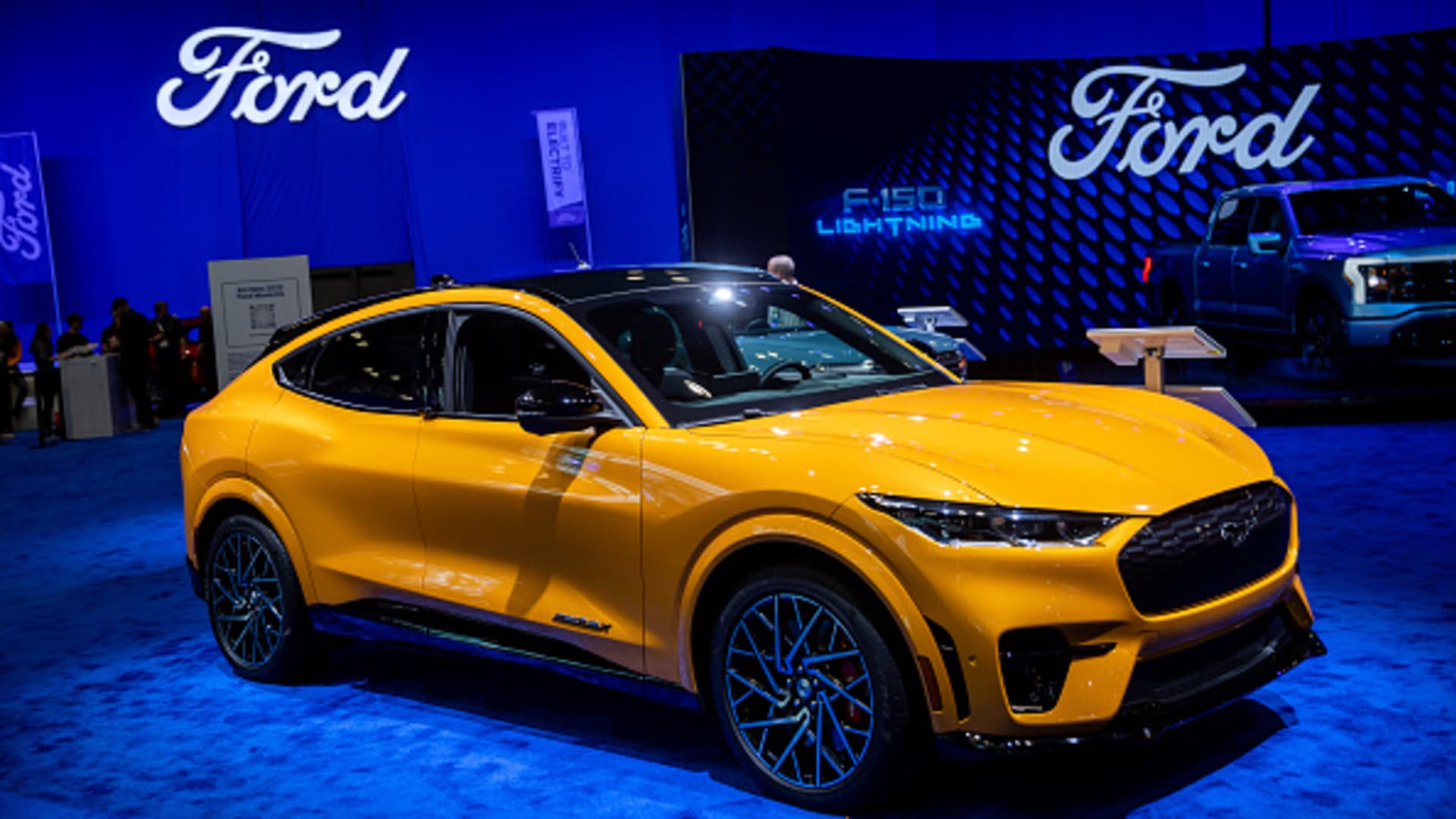
A Ford Mustang Mach-E GT compact sports utility vehicle during the 2022 New York International Auto Show in New York on April 14, 2022.
Michael Nagle | Bloomberg | Getty Images
DETROIT — Ford Motor is rethinking its electric vehicle strategies, including “reassessing” the need for vertical integration of batteries, CEO Jim Farley said Tuesday.
The Detroit automaker previously confirmed plans to delay or cut $12 billion in spending on all-electric vehicles, but the comments made Tuesday are the most detailed about Ford’s changing plans for EVs, sales of which are growing at a slower-than-expected rate.
“One of the things we’re taking advantage of in taking some timing delays is rationalizing the level and timing of our battery capacity to match demand and actually reassessing the vertical integration that we’re relying on, and betting on new chemistries and capacities,” Farley said during the automaker’s fourth-quarter earnings call.
Farley reiterated the company still believes EVs will grow, but noted widespread adoption for mass-market consumers won’t happen until the costs are more in line with traditional vehicles. EVs are typically thousands of dollars more expensive than their gas-powered counterparts.
Ford Chief Financial Officer John Lawler said in addition to reassessing the vertical integration in new battery chemistries, the company is further looking into adjusting installed production capacity to match demand and potentially delaying next-generation EVs to “to ensure they meet our criteria for profitability, given the new market reality.”
The company’s EV business, known as Model e, lost $4.7 billion last year, including $1.57 billion during the fourth quarter of 2023, offset by profits in the company’s fleet and traditional internal combustion engine units. Both businesses earned more than $7 billion each last year.
Lawler said Tuesday that the unit will have to stand on its own “sooner rather than later.”
He also said the company is pulling a target for its EV unit that called for 8% margin by 2026. The company had already set a target of two million vehicles sold annually by that time.
As Ford pulls back and reevaluates the EV business, it intends to lean in on sales of hybrid vehicles, specifically trucks. The company expects its hybrid sales to increase 40% this year. It sold 133,743 hybrid vehicles in the U.S. in 2023.
Don’t miss these stories from CNBC PRO:





